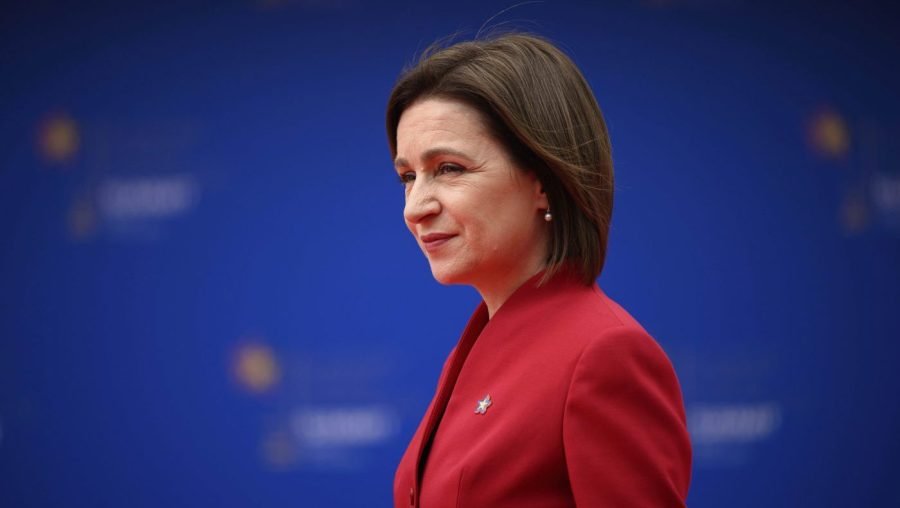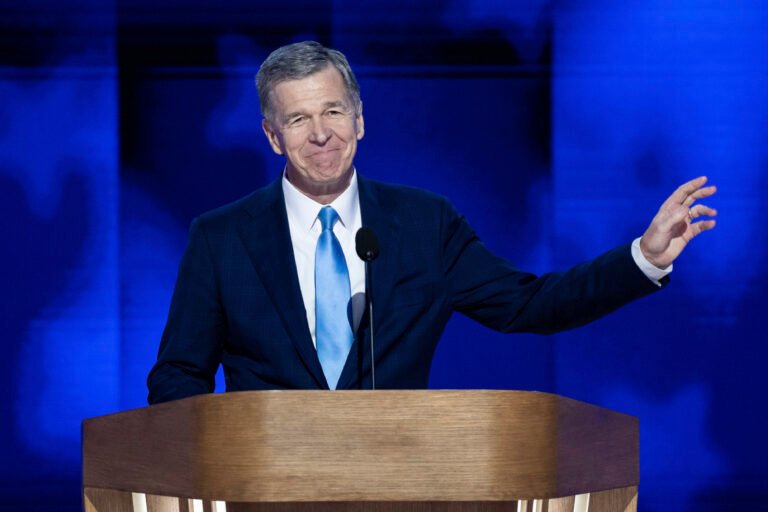
Russia’s foreign intelligence agency recently accused NATO of drawing Moldova into “armed conflict with Russia.” Moscow has also claimed that the tiny nation’s intelligence service is cooperating with Ukraine to sabotage its enormous neighbor.
These accusations are not new, but rather part of a long-term Kremlin narrative seeking to justify aggression against Moldova.
As President Trump puts pressure on Moscow, Russian President Vladimir Putin is searching for new opportunities to challenge Washington. Moldova offers just what he is looking for. The U.S. and its allies should get ready for Russian meddling in Moldova’s elections in September.
Russia has long interfered in Moldova. It is located squarely between Romania — NATO’s eastern flank — and Ukraine’s vulnerable underbelly. Having a pro-Russian government there would allow Moscow to menace both Ukraine and NATO simultaneously. Moscow also wants to prevent Moldova from continuing its Western progression and eventual membership in the European Union.
We know Putin’s playbook. Moldova held presidential elections last fall, which were subject to what the U.S. State Department called “an unprecedented level of Kremlin interference.” The elections were reportedly marred by widespread vote-buying. pro-Russian oligarch Ilan Shor is alleged to have distributed up to $39 million to about 138,000 voters in a country with a total population of under 2.5 million.
When Russia cut gas exports to Moldova after its full-scale invasion of Ukraine in February 2022, gas prices rose seven-fold and overall inflation spiked to 35 percent. Shor’s opposition party has also worked to foment unrest against the Moldovan government, magnifying the impacts of Russian energy blackmail.
Shor’s party took advantage of this economic chaos, organizing demonstrations calling for President Maia Sandu to resign. But these were not spontaneous protests. Shor paid attendees up to 80 euros a night to protest. The average Moldovan makes less than 740 euros per month.
The American government has sanctioned Shor for his participation in “Russia’s global influence campaign, which seeks to manipulate the United States and its allies and partners.”
Russia uses economic turmoil to enhance its information operations in target countries, seeking to convince the population that Russia is a more dependable ally and economic partner than the U.S. or Europe. It is clear that similar efforts will be used in this fall’s parliamentary election campaign in Moldova.
Russia’s favorite game is unfreezing “frozen conflicts,” which in this case means in Transnistria, a breakaway region in Moldova economically and militarily supported by Russia. Transnistria is run by pro-Russia leaders who facilitate the Kremlin’s broader plan to destabilize and maintain a foothold in Moldova. Russia maintains 1,500 Russian “peacekeeping” forces in Transnistria, actively threatening Moldova’s security.
Moldova’s president warned in June that Russia could manufacture a crisis in Transnistria as the elections approach. “If Russia comes to power, Moldova will become a base for hybrid war against the EU,” she said. She accused Russia of “using” the residents of Transnistria as a means of influencing Moldova.
Moldovan Prime Minister Dorin Recean has also warned that Russia is trying to install a pro-Russian government in Moldova that will allow Russia to deploy up to 10,000 troops in Transnistria. He alleges that a “huge effort to undermine Moldovan democracy” is underway, targeting the upcoming elections. An “investment” — in other words, bribes — by Russia in the parliamentary elections similar to the one made in the presidential election could go a lot further if used to target vulnerable pro-democracy candidates in competitive districts.
These warnings parallel the assessment by Ukrainian President Volodymyr Zelensky that Russia hopes to conquer the Odesa region of Ukraine as a means of threatening Moldova and Romania. Putin is working this issue from both sides of the Moldovan-Ukrainian border.
The West can help Moldova protect its democracy, but that requires recognizing how Russia uses hybrid warfare and countering Moscow in its own space, with both offensive and defensive influence operations.
First, the U.S. should provide legal and technical assistance to Moldovan authorities investigating illicit financial flows between Russia and pro-Russian parties in Moldova. This can help protect the upcoming elections from Russian meddling. Second, Western countries should conduct their own influence operations to combat Russian disinformation, weaken Russian influence and put Moscow on its back foot.
As Trump is negotiating with Putin over a ceasefire on Ukraine, the Kremlin is searching for new avenues to challenge Washington and weaken Brussels. Sowing political mayhem in Moldova is part of that strategy. Trump and his European allies should put Putin on the defensive before September to let the Kremlin know who is the boss.
Ivana Stradner is a research fellow at the Foundation for Defense of Democracies, where Rear Adm. (Ret.) Mark Montgomery is a senior director at its Center on Cyber and Technology Innovation.

